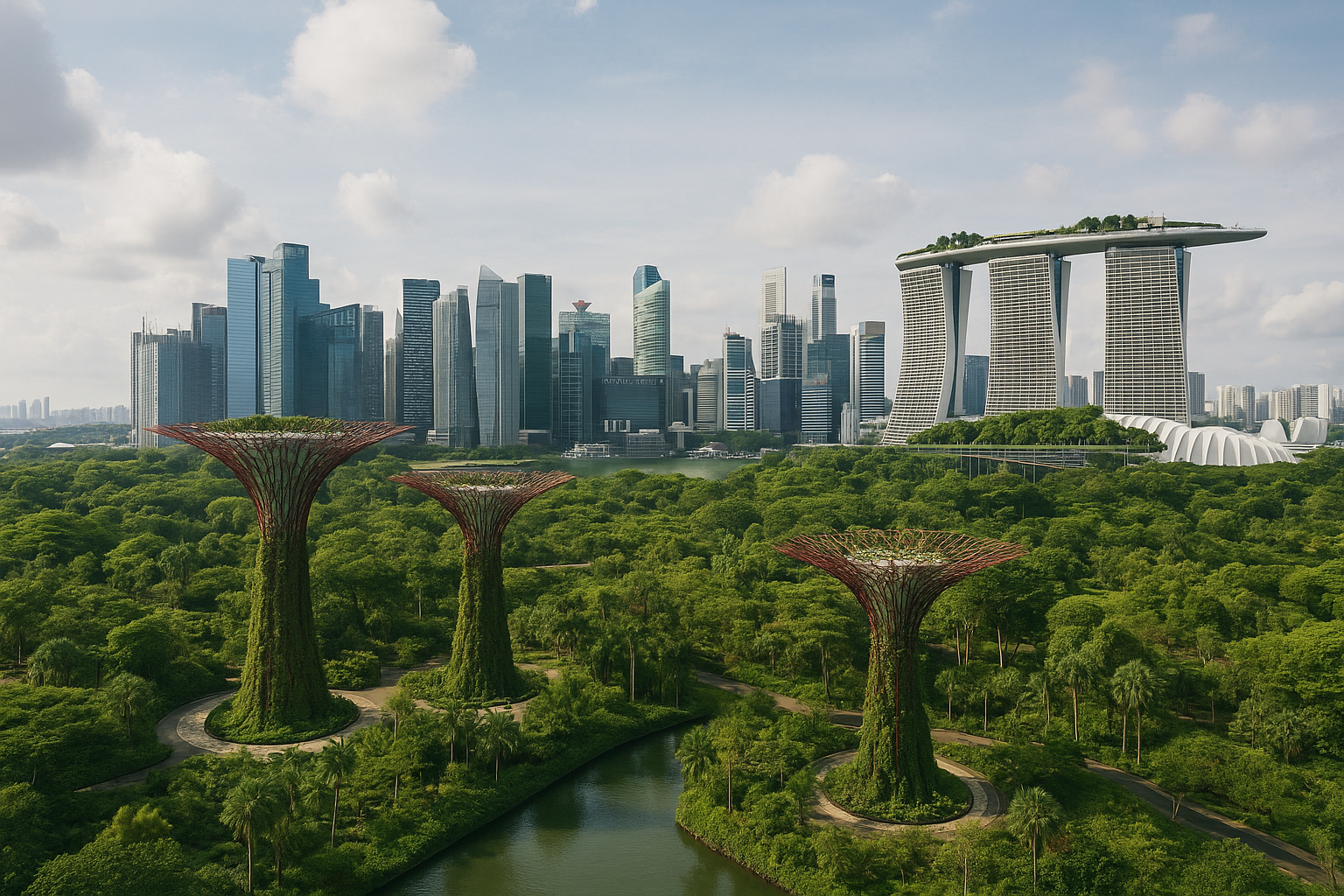UN Expert Urges Singapore to Bolster Climate and Environmental Efforts
Puentes Riaño acknowledged Singapore’s remarkable transformation from a developing nation to one of the most developed economies globally.

Singapore, a global hub of innovation and economic prosperity, has been called upon to intensify its environmental and climate-related actions, according to Astrid Puentes Riaño, the United Nations Special Rapporteur on the human right to a clean, healthy, and sustainable environment. Following her official visit to the city-state, Puentes Riaño lauded Singapore’s accomplishments while urging a bolder approach to meet the escalating challenges of climate change, biodiversity loss, and toxic pollution.
Recognizing Progress and Potential
Puentes Riaño acknowledged Singapore’s remarkable transformation from a developing nation to one of the most developed economies globally. In just 60 years, the island nation has risen to become the world’s fourth-richest country and is ranked first in human capital development. With this status comes significant responsibility, and Puentes Riaño emphasized that Singapore has both the capacity and expertise to lead global efforts in sustainability.
“Singapore is a city-state with an impressive capacity and expertise on sustainability, climate change and environmental matters,” she said.
However, she stressed that Singapore’s development path must now pivot to emphasize environmental stewardship and human rights. “Considering the triple planetary crises of climate change, biodiversity loss and toxic pollution, Singapore can and must increase efforts to reduce demand of energy, water and resources,” she added.
Emphasizing Rights-Based and Ecosystem Approaches
Central to Puentes Riaño’s recommendations was the call for Singapore to adopt a more human rights-centered and ecosystem-based approach to environmental policy. She encouraged greater inclusion of natural solutions and traditional, ancestral knowledge to complement Singapore’s high-tech strategies.
“Access to information, public participation and access to justice in decision-making processes are essential elements of the right to a clean, healthy and sustainable environment,” she stated. “Improving and clarifying these rights is vital.”
Such an approach, she explained, should ensure that environmental governance is not only technologically effective but also socially inclusive and transparent.
Reducing Reliance on Fossil Fuels and Plastics
Singapore’s heavy reliance on natural gas—comprising 95% of its electricity generation—was identified as a key area needing urgent reform. Puentes Riaño called for a significant reduction in fossil fuel dependency and a stronger commitment to shifting toward renewables and sustainable consumption patterns.
Beyond energy, she also pointed to plastic production and consumption as another area requiring immediate attention, advocating for policies that curb plastic use and promote circular economy models.
Additionally, she highlighted the importance of stricter environmental monitoring of industries operating in Singapore, particularly those in the petrochemical sector. Effective oversight, she noted, would help prevent, mitigate, and restore damage caused by industrial activity.
Addressing the Realities of Climate Vulnerability
As a densely populated island nation with limited natural resources, Singapore faces acute climate-related vulnerabilities. These include rising sea levels, more frequent and severe heatwaves, and extreme weather events—all of which already impact the rights and well-being of its citizens.
Puentes Riaño visited several key infrastructure and conservation sites during her trip, including the TuasOne Waste-to-Energy Plant, Marina Barrage, Sisters’ Islands Marine National Park, and the petrochemical complex at Jurong Island. These visits underscored Singapore’s infrastructural preparedness, but also illuminated areas where deeper integration of environmental and human rights policies is needed.
She praised Singapore’s “City in Nature” initiative, which aims to enhance green spaces, protect biodiversity, and improve resource efficiency. Nonetheless, she cautioned that such efforts must be scaled up and tied more directly to rights-based frameworks.
The Path to Net-Zero and Global Responsibility
Singapore has pledged to reach net-zero emissions by 2050 and updated its Nationally Determined Contribution (NDC) with a reduced 2035 target. While these commitments are significant, Puentes Riaño emphasized that more ambitious steps are necessary, especially given Singapore’s high per capita emissions and its large carbon footprint related to consumption.
“While Singapore contributes 0.1 percent of global climate emissions, it ranks high in terms of climate emissions per capita and consumption-related emissions,” she noted. “Therefore, there is significant space for improvement.”
To truly lead by example on the global stage, Singapore should, she advised, shift its development priorities from economic growth to human and ecological well-being. This transition would also help alleviate pressure on both domestic and overseas ecosystems.
“Shifting focus away from economic growth and increased consumption and centering more on human rights and nature could ease pressure on Singapore’s limited natural resources and the impact overseas,” Puentes Riaño said. “This is possible while still improving the wellbeing of the population and inspiring global leadership.”
Looking Ahead
The Special Rapporteur’s full findings and recommendations will be detailed in a report to be presented to the UN Human Rights Council in March 2026. Her visit, which included meetings with government agencies, civil society groups, and academic institutions, marks a pivotal step in deepening international engagement on the intersection of climate action and human rights in Singapore.
As global environmental challenges mount, the expectation is clear: Singapore, with its wealth, innovation, and ambition, must evolve from a success story of economic development to a beacon of sustainable and inclusive environmental leadership.










